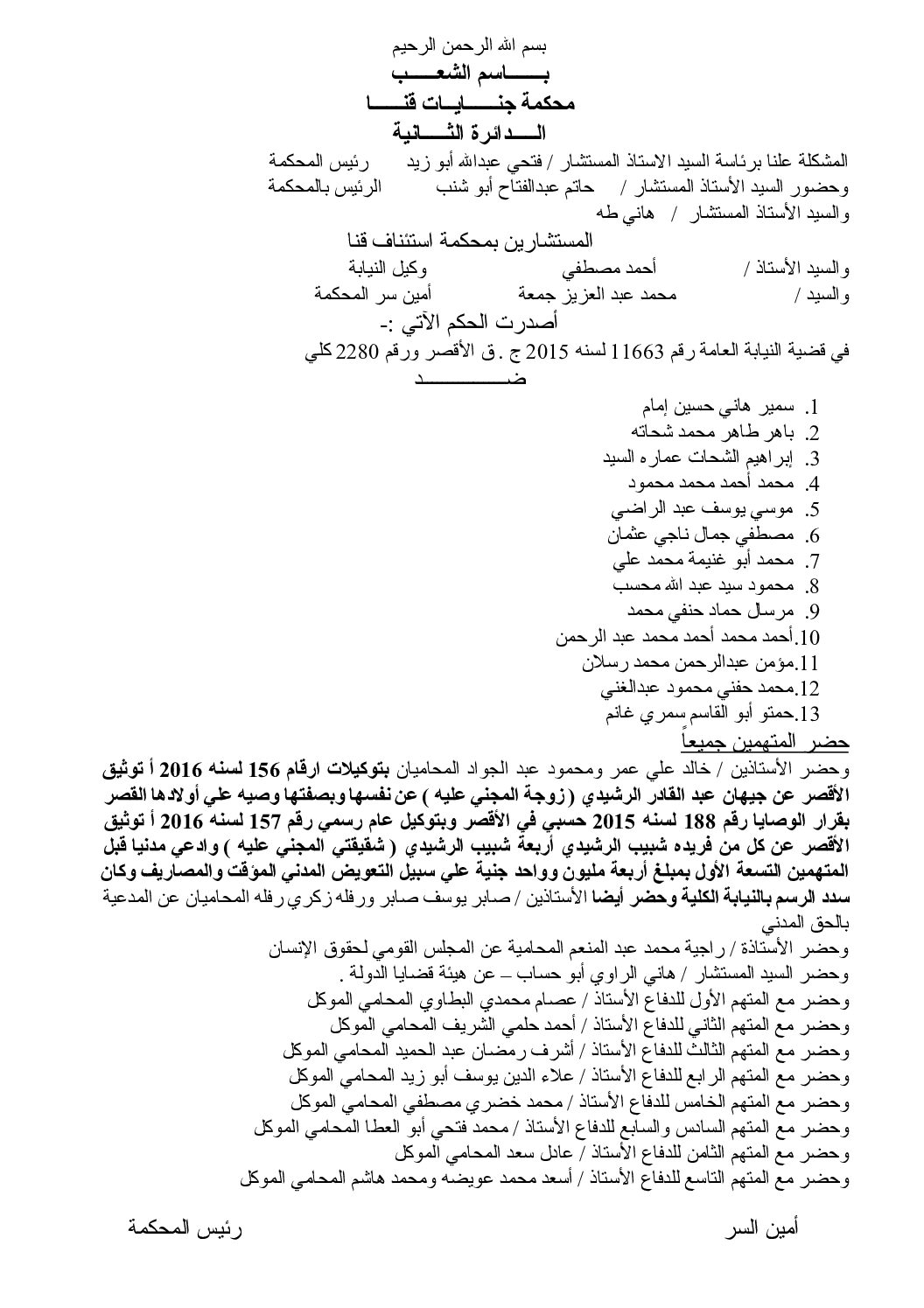Rights and Liberties | Administrative Justice Authorizes Challenging Constitutionality of Protest Act

The Administrative Court of Justice authorized today challenging the constitutionality of Protest Act before the Supreme Constitutional Court.
The ECESR, in collaboration with the Rule of Law Support Center, brought an action against the President of the Republic, the Prime Minister, the Interior Minister, Cairo Governor, and Hadaeq El-Qoba Police Station Commander for the decision of preventing a demonstration to be organized. The organizers applied for approval in accordance with the specified legal provisions of the law 107/2013 (known as the Protest Act), which governs the right to organize public meetings, processions and peaceful demonstrations.
Beside the above mentioned demand, the lawsuit aims to challenging the constitutionality of Articles 8 and 10 of the Protest Act, which confer the Interior Ministry absolute discretionary power to refuse giving permission for holding a demonstration or a general meeting. This power is contrary to the constitutional provision that guarantees the right to demonstrate and hold public meetings with prior notice served on the administrative bodies.
This lawsuit comes in the context of the persistent human rights efforts exerted by the ECESR along with other civil society organizations to confront the organized campaign led by the July 3, 2013 regime, which tries to stifle the public domain and confiscate the gains grabbed by the Egyptian people. The right to peaceful protest comes at the forefront of these gains. It is considered the only tool available to the active popular forces to exercise the right to freedom of expression and pressure on the executive branch in order to respond to popular demands, which are raised in the absence of political practice mechanisms and the restrictions imposed on civil society in general.
The regime’s intentions have come to the surface by promulgating the Protest Act in the absence of an elected legislative authority; by moving to stifle the public domain and punish politicians and human rights activists; and by providing the legal pretext to pursue them and fabricate fake charges for political purposes. Once the law took effect, dozens of political activists and ordinary citizens were prosecuted against the backdrop of their call or participating in peaceful demonstrations or even passing by chance in the surrounding neighborhood. It started by the trial of 25 activists and citizens, including the political activist Alaa Abdel Fattah, against the backdrop of demonstrations in front of the Shura Council. They were sentenced to 15 years in prison to be put later after the execution of the sentence under surveillance for a period of 5 years and a fine of 100 thousand pounds. It went through holding primary and final rulings against many well-known activists in Cairo and Alexandria, including Mahinur el-Masry. Her appeal against the two-year sentence and the LE 50.000 fine was rejected. The sentence was handed down for her participation in a demonstration held in front of Manshiya court in Alexandria calling for avenge to Khaled Said’s death.
This series of prosecutions coincided with and linked to the media attack directed by the regime against human rights organizations, which escalated to storming the ECESR offices twice in less than six months. This process has been associated with hunting activists down or breaking up peaceful protests held in solidarity with them for abolishing the Protest Act. Certainly, the executive branch, represented by the Ministry of the Interior, takes this law as an excuse to justify its expansion outside its framework in order to torture dissidents and activists in the public domain regardless of their political orientations.
Relying on the Egyptian Judiciary, administrative and constitutional courts, as the guarantee and the last resort to protect the rights and freedoms, The ECESR confirms through this lawsuit and others on the belief that the various litigation process is a key tool in the peaceful struggle for the protection of the rights and freedoms of all kinds. It is the time to renew confidence in the Egyptian judiciary; it is absolutely necessary at a time when the current regime’s practices appear to be subduing the legislative and judicial powers to the requirements of political interests of the executive branch. This subduing process severely damages the citizens’ rights and safety. Confirming the independence of the judiciary and purifying the Egyptian laws and regulations, which are full of repressive restrictive provisions, is an essential path among several paths through which we hope to reach a state of justice and freedom that the Egyptian people deserves.

